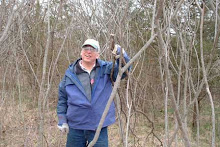
Here are the best websites and books about pollinators and native bees in Michigan:
Web sites
Michigan State University http://nativeplants.msu.edu/publications.htm
Attracting Beneficial Insects With Native Flowering Plants. E-2973
Conserving Native Bees on Farmland. E-2985
Xerces Society http://www.xerces.org/guidelines/
Pollinator-Friendly Parks. How to Enhance Parks, Gardens, and other Greenspaces for Native Pollinator Insects
Pollinators in Natural Areas: A Primer on Habitat Management
Farming for Bees: Guidelines for Providing Native Bee Habitat on Farms

Books
Pollinator Conservation Handbook, Xerces Society for Invertebrate Conservation,
Befriending Bumble Bees, A Practical Guide to Raising Local Bumble Bees, Elaine Evans et al., University of Minnesota Extension,
The Natural History of Bumblebees: A Sourcebook for Investigations, Carol A. Kearns and James D. Thomson, University Press of Colorado, 2001


